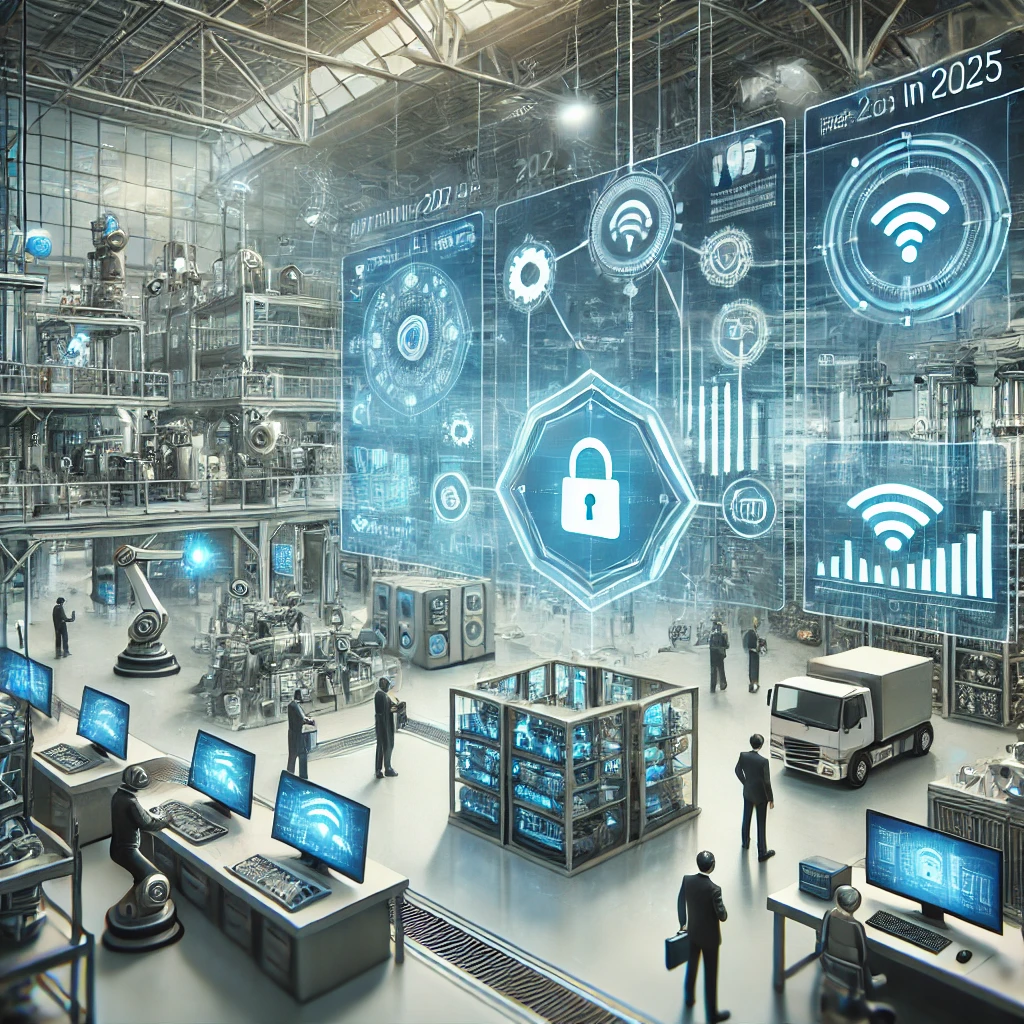
How IoT is Streamlining Industry Operations in 2025
Discover the latest innovations in IoT and how they are transforming industries in 2025. From AI and 5G to smart homes, learn how technology is changing the game.
The IoT Revolution: A Glimpse into the Future
The Internet of Things (IoT) is reshaping industries in ways we never imagined. In 2025, this interconnected web of devices is more than just a buzzword – it’s a powerhouse driving efficiency, innovation, and growth. But how exactly is IoT streamlining industry operations? Let's dive into it!
Innovative AI Tools Driving Industry Efficiency
The latest innovations in AI and their real-life applications are playing a crucial role in optimizing business operations. AI algorithms are making predictive maintenance, process automation, and resource optimization a breeze. With IoT, AI tools can gather data from multiple devices in real-time, providing actionable insights that improve productivity.
AI in Manufacturing: A Game Changer
In manufacturing, AI-powered robots work seamlessly with IoT sensors to monitor production lines, detect flaws, and optimize output. Imagine a factory where every machine is connected and continuously adapting to the environment – that’s the power of IoT combined with AI.
Best Smart Home Gadgets to Simplify Your Life
Smart home technologies have come a long way. In 2025, IoT-enabled gadgets are making our lives more convenient, secure, and energy-efficient. From voice-activated lights to smart thermostats, these gadgets not only improve the quality of life but also contribute to industry advancements.
IoT at Home: Where Convenience Meets Sustainability
Smart home devices are not just about comfort; they’re also about saving energy and promoting sustainability. Consider smart thermostats that learn your habits and adjust temperatures automatically, reducing energy waste. These devices are part of a bigger trend in how IoT is revolutionizing both personal and industrial settings.
How IoT is Revolutionizing Industries
From healthcare to agriculture, IoT is breaking barriers and introducing new possibilities. Sensors in industries collect vast amounts of data, which is then used to make real-time decisions. This leads to improved efficiency, reduced operational costs, and a more sustainable approach to industry practices.
Healthcare: Remote Monitoring and Data Sharing
In healthcare, IoT devices enable real-time patient monitoring. Wearable health trackers provide doctors with continuous data, leading to faster interventions and more personalized treatments. It’s a prime example of how IoT is saving lives and improving healthcare systems.
Logistics: Smarter Supply Chains
In logistics, IoT sensors track the location, condition, and movement of goods in real-time. This leads to better supply chain management, faster delivery, and reduced costs. Companies can now predict delays and optimize routes with incredible precision, all thanks to IoT.
Top 5G-Enabled Devices You Need to Know About
The advent of 5G technology is making IoT even more powerful. With faster speeds and lower latency, 5G is enabling industries to take full advantage of IoT devices. Here are some of the top 5G-enabled devices making waves in 2025:
5G in Smart Cities
Smart cities are becoming a reality, and 5G is at the core of this transformation. From smart streetlights that adjust based on traffic to connected public transport systems, 5G is enhancing the efficiency of urban infrastructures.
Autonomous Vehicles
Self-driving cars are using 5G to communicate with other vehicles and infrastructure in real-time. This is making autonomous vehicles safer, more efficient, and more reliable. IoT-powered transportation systems are the future of commuting.
Practical Uses of Sustainable Technologies in Everyday Life
With sustainability at the forefront of global priorities, IoT is playing a crucial role in making everyday life greener. From energy-efficient smart homes to renewable energy management systems, IoT is paving the way for a more sustainable future.
Smart Grids and Energy Management
IoT-enabled smart grids are transforming the way we use energy. These grids can monitor consumption, predict demand, and automatically switch to renewable sources when needed. It’s an excellent example of how sustainable technology innovations are making our world more eco-friendly.
The Future of IoT: Challenges and Opportunities
While the potential of IoT is immense, there are challenges to overcome. Data privacy, cybersecurity, and the integration of legacy systems are just a few hurdles that industries face as they embrace IoT. However, the opportunities for growth and innovation far outweigh these obstacles.
FAQs
1. How does IoT improve industrial efficiency?
IoT improves industrial efficiency by connecting devices and systems, allowing them to collect data in real-time. This data can be used to optimize processes, predict maintenance needs, and reduce operational costs.
2. What are some practical applications of AI in industries?
AI applications in industries include predictive maintenance, automated processes, and data analysis. These applications help businesses improve efficiency, reduce waste, and enhance decision-making.
3. Can smart home devices reduce energy consumption?
Yes, smart home devices like thermostats and lighting systems can adjust based on usage patterns, helping to save energy and reduce utility bills.
4. How is 5G affecting IoT?
5G provides faster internet speeds and lower latency, allowing IoT devices to communicate more efficiently. This makes IoT applications like autonomous vehicles and smart cities more reliable and effective.
5. What are the key challenges in implementing IoT in industries?
Key challenges include data privacy concerns, the complexity of integrating legacy systems, and ensuring the security of connected devices. These challenges need to be addressed for successful IoT adoption.